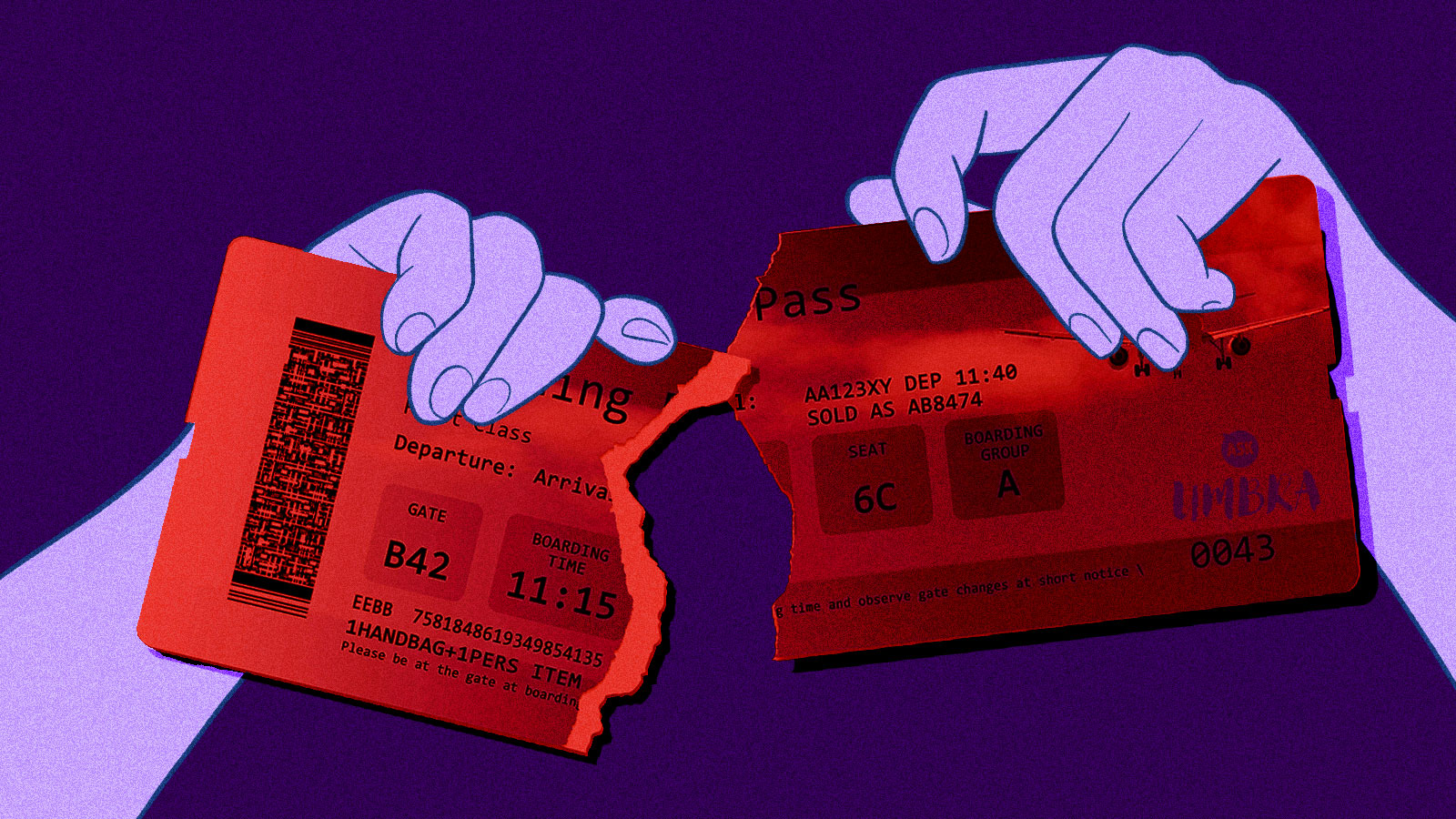Q. Dear Umbra,
Due to coronavirus, the city I live in is on the brink of a mandatory shelter-in-place order. I’m used to coping with existential fears like climate change as a single adult living solo, but there’s a big part of me that just wants to be with family during this pandemic. My parents, who live more than 1,000 miles away, are selling me hard on the idea that I should head to their house so we can ride things out together. Can I justify traveling to be with them? If not, how can I explain to them that these last-minute reunions might be putting people in harm’s way?
— So, This Really Aggravates Nostalgic Desires and Emphasizes Distance
A. Dear STRANDED,
I’ve heard so many versions of this very same question over the past two days that I’ve lost count. Emotions and stresses are sky high right now. And when that is the case — whether it’s due to a natural disaster, global pandemic, or any other large-scale disaster — we very reasonably want to be with people we love. Not everyone’s family is a comforting presence to them, to be sure, but if yours is, and you’re thinking about how the world is frightening and there’s no guarantee of when this will all be over — well, I empathize with the urge to go be with them more than you know.
I recently had a heated argument with my brother over whether or not to travel from the corona-overwhelmed West Coast to hunker down with our parents (both in their late 60s) in Pennsylvania. My brother and I never fight, but by the end of the conversation, I had screamed at someone I loved and burst into tears, making both of us feel even worse about everything.
For this particular crisis, seeking comfort by physically spending time with your parents is a terrible catch-22: You know that your parents’ age (and possibly their underlying health conditions) make them vulnerable to COVID-19, so you want to be nearby to care for them. And yet you know that by traveling to be with them, you risk carrying that very virus that causes it directly to their doorstep, and you might not even know for days. It’s emotional need versus rational evaluation of risks — and contrary to the entire discipline of economics, humans aren’t actually very good at choosing the rational option.
But in this unprecedented moment, it’s important to defy our natures and be rational. That’s not just my official advice: Public health officials are begging people not to travel — more than that, simply to stay put in their homes. Following that advice is not just important for the well-being of your aging parents, but also for the families of everyone you’d theoretically come into contact with between your front door and your parents’. A “shelter-in-place” order sounds really scary and apocalyptic but is executed to avoid millions of easily preventable deaths, High School Musical star Vanessa Hudgens’ opinion notwithstanding.
But looking ahead — this corona situation will subside eventually. Pandemics do end! It may take several months, but we’ll all be able to hug the shit out of each other again! We’ll experience with new appreciation all the birthday parties and weddings and happy hours and first dates that we used to bitch and moan about! I make myself smile every day thinking about what I’m going to do when I get out of my apartment!
And as you consider the future (you’ve got a lot of unstructured time indoors ahead of you, I assume) I suggest you spend at least a little bit of that time considering this question: Does this experience make you want to change your life so you can spend more time with the people you love? Like … moving to be closer to your parents or other family members?
Young people tend to move away from their hometowns to go to competitive colleges or universities and then on to lucrative economic opportunities, which are concentrated in cities. That’s less true of millennials — my generation, and presumably yours judging by your question. Compared to other cohorts, a smaller proportion of our generation has migrated away from the nest in their 20s. That’s because millennials are, economically speaking, in worse shape than any recent generation thanks to a hellish combo platter of the 2008 recession, student debt, high housing prices, and lack of secure, long-term employment opportunities, among other things.
Given that you’re already employed far from home, I know it’s not necessarily easy to contemplate a future move. This corona pandemic has, in an astonishingly short amount of time, laid bare some of the severe issues with the American economy. Service workers are unacceptably vulnerable and childcare and education aren’t valued or subsidized nearly enough. But it turns out a lot of office workers don’t have to be physically sitting at a desk from 9 to 5 every day! I mean, we established that in 9 to 5, the movie, which came out nearly 40 years ago! A lot of work can be done remotely, which has its own meaningful climate benefits in slashing daily car commuting.
There’s a possibility that after all of this is over, remote work could become a more common practice, and workers could redistribute outside of a few major cities and return, if they wish, to their hometowns. This pattern is known as the “boomerang” effect, and it’s considered an economic lifeline for a lot of the less bustling metro areas and small towns that have shrunk in population. The logic is straightforward in theory: Young people go out and gain lucrative skills and education, and bring those back home to boost the faltering economies of their hometowns.
I’d also suggest that there are some unexpected pro-climate externalities of people moving back to their hometowns. For example: I spoke to Nicolas Gonzalez, a 31-year-old Audubon spokesman, who made the decision to move back to his hometown of Los Angeles from New York a couple of years ago. He said that upon returning, he’s been significantly more engaged in local activism and politics and that he’s “more comfortable putting roots down here, and giving back to the city in a way that I never really felt drawn to do in New York.” (If you’ve ever read this column before, you probably know my position that local politics and activism are the place you can have the greatest climate impact!)
So is a move back home in the post-corona cards for you? In practice, it’s not always so easy. Moving is exorbitantly expensive and challenging, jobs are uncertain — especially now — and often inflexible, and maybe things with that new Hinge guy are worth waiting to see what happens. He has great arms! But if you can swing it, there is a lot of potential benefit for you and possibly some tinier — but meaningful! — benefits for comprehensive local climate action. And given that you’re having the conversation of whether to travel a far distance to your hometown at all, there’s a decent chance that you’re in a relatively privileged position, as this Vox explainer lays out pretty clearly.
The silver lining of massive, terrifying crises is that they make you consider what you want your life to look like when they’re over, and whether you can make that new life happen. And I love, love, love a silver lining.
Hopefully,
Umbra
P.S. Grist news reporter Zoya Teirstein wrote about a similar personal conflict in Grist’s brand-new newsletter about coronavirus and climate change. Subscribe here!



